Make Health services accessible to all – ‘Save The Children’ tells Nigeria
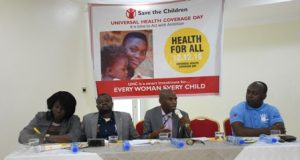
L-R: Ms. Adetokunbo Diane Lawrence, Advocacy Officer, Save the Children International Dr. Opeyemi Odedere, MNCH Adviser, Save the Children International, Barrister Ayo Adebusoye, Co- Chairman of the Lagos State Accountability Mechanism on Maternal and Newborn Health and Chairman of the Lagos Advocacy Working Group (LAWG) and Mr. Babatunde Folorunsho, Advocacy Adviser, Save the Children International at the press briefing.
Nigeria joined the rest of the world yesterday to mark the Universal Health Coverage (UHC) with a call by the Save the Children International, a global charity organization, on governments and other stakeholders to make health care services accessible to the people.
In a press release to mark the Day, the organization stressed the need for the nation to join the global Health for All movement and intensify its commitment to UHC, by building universal, reproductive, maternal and newborn, child and adolescent health services (RMNCAH) at the primary health care level.
According to the organisation, there is a growing global consensus that UHC is a smart investment and an achievable goal everywhere as all countries are committed to UHC through their endorsement of the Sustainable Development Goals (Target 3.8, under Goal 3).
Citing statistics showing that a large number of women and children are still dying from preventable causes, just as a majority of the people still lacks access to quality health, the release stated: “In Nigeria, under-five mortality rate is 109 per 1,000 live births; newborn mortality- 34/1,000 (UNICEF State of the World’s Children, 2016), 62% of deliveries happen without the presence of a Skilled Birth Attendant; there are 2 skilled health workers for every 1,000 people (and NDHS, 2013); in 2014, instead of the recommended 15% recommended by the Abuja declaration 8% of the government’s budget was spent on health; out of pocket expenditure on health is high- 72% of total health expenditure.”
The release quoted the Area Operations Manager for Save the Children Nigeria in Lagos state, Mr. Roy Chikwem as urging the country to intensify efforts in improving the situation: “We need to do more to improve health care delivery for mothers and children in the country as the figures reflect high numbers of deaths among under-fives”. he said.
“Save the Children is calling for increased national commitment and investment towards UHC, by building RMNCAH services at primary health care level as a first priority and prioritising access for the poorest and most marginalised and excluded groups.
“Our call to governments, donors, development partners and all stakeholders is to: guarantee an essential package of RMNCAH services as the first priority for UHC; free at the point of use and accessible to all; establish time-bound equity targets for accelerated progress among the poorest and most marginalised and excluded people, so no one is left behind; increase public spending on healthcare to at least recommended minimum levels; improve quality and promote respectful and dignified care in health facilities; and fully implement the National Health Act.”
Speaking at a press conference in Lagos, the Save the Children International Advocacy Officer, Ms. Adetokunbo Diane Lawrence said UHC is all about ensuring that everyone is given access to quality health services without financial hardship.
Thus, the ultimate goal of primary health care, she said, remains better health for all by reducing exclusion and social disparities in health (universal coverage reforms); organizing health services around people’s needs and expectations (service delivery reforms); integrating health into all sectors (public policy reforms); pursuing collaborative models of policy dialogue (leadership reforms); and increasing stakeholder participation.
In his presentations, the Maternal and Child Health Adviser, Dr. Opeyemi Odedere said countries must address Human Resources for Health (HRH) challenges as the progress on the post-2015 Sustainable Development Goals, is currently being threatened by inadquate manpower.
“Despite featuring prominently as one of eight priority areas in the National Strategic Health Development Plan 2010-2015, critical shortages in HRH pose a significant challenge to the Nigerian health system.”
According to him, poor health outcomes for newborn babies and under-5 children in Nigeria are due largely to the poor supply and quality of health services delivered, as a result of limited human resources, a lack of lifesaving commodities and equipment, and inadequate infrastructure
“Only 38% of women have access to a skilled birth attendant,” he further said.
Dr, Odedere further listed key human resources challenges in Nigerian health system which include: Inequitable distribution of health workers especially in hard to reach areas; inadequate national and state level budgets for the development and training of health workers; outdated curriculum that does not include current best practices at pre-service level; lack of regular new and refresher in-service training organized for health workers by the government; poor work environment; and lack of tools, equipment, supervision and mentorship contributing to poor motivation & performance.
He disclosed that Save the Children in its intervention within the next three years would improve access to lifesaving, quality healthcare by directly building the capacity of 5,000 frontline health workers.
The organization, he further said, would Influence policy change to improve the delivery of quality health services to mothers, newborn babies and children under the age of five in three selected states – Lagos, Gombe and Kaduna.
“Our objective is to ensure that health workers are correctly applying improved skills and knowledge in the provision of MNCH services and also to enable a policy environment which supports the delivery of quality MNCH services in the three states by 2018,” he further said.
UHC Key messages
- UHC is key to ensuring that everyone has access to essential healthcare. Without a commitment to UHC the poorest and most disadvantaged populations will continue to be left behind.
- UHC is key to ensuring that essential health services – across the full continuum of care for women, children and adolescents – needed by every family and community are available to all without deterring people by out-of-pocket payments..
- Countries must strive to achieve UHC and must prioritise these services. Doing so will require political leadership, commitment and investment
- Governments must demonstrate political and financial commitment to UHC, and must increase public spending on healthcare by moving away from relying on private and out of pocket expenditure towards mandatory, pre-paid and pooled funding mechanisms for health.
- Governments should increase public spending on healthcare to at least 5% of GDP and reach the recommended minimum of $86 per capita of domestic financing for health
- Governments must guarantee an essential package of sexual, reproductive, maternal, newborn, child and adolescent health services in efforts to achieve UHC, free at the point of use and accessible to all sections of the population
About author
You might also like
CAN tasks FG on improved health infrastructure for aging population
The President of the Christian Association of Nigeria (CAN), Archbishop Daniel Okoh, has expressed concern about the state of health infrastructure in Nigeria, particularly in rural areas, where a significant
Buhari to inaugurate CHIPS Nasarawa State
ABUJA – The National Primary Health Care Development Agency (NPHCDA) says President Muhammadu Buhari will inaugurate the Community Health Influencers, Promoters and Services (CHIPS) programme in Lafia, Nasarawa State.
Update: Nigeria gears up for Ebola
Health Minister Inspects Abuja airport health facilities, says “Don’t panic” Screening of inbound passengers commences at international airports NCDC conveys stakeholders meeting, inaugurates Ebola Preparedness Working Group (EPWG) WHO Regional

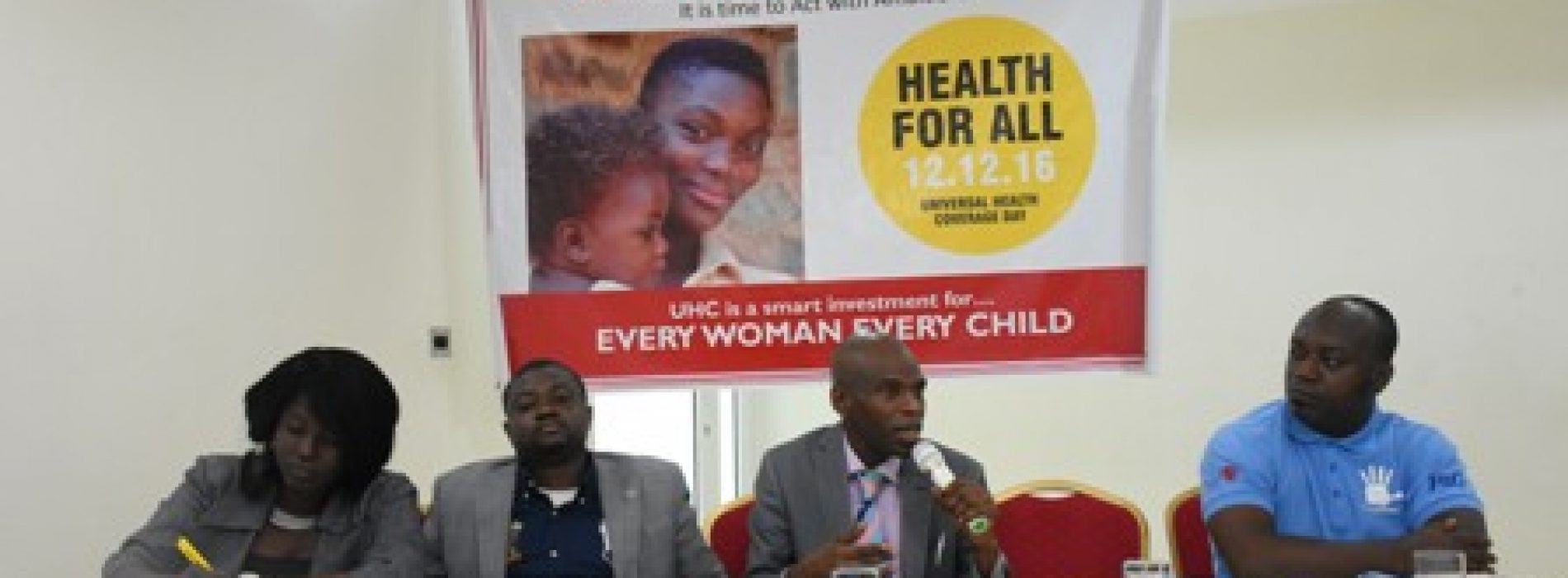
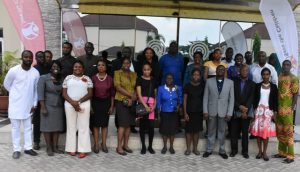
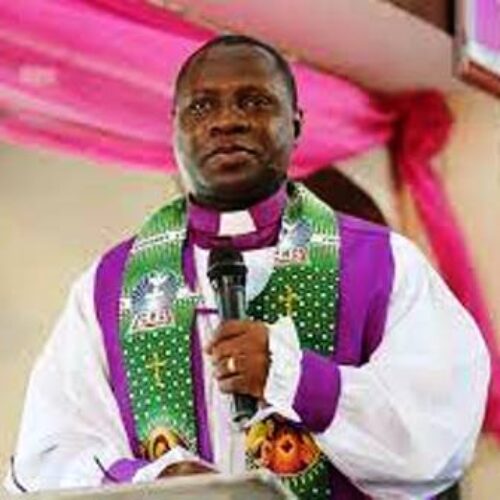
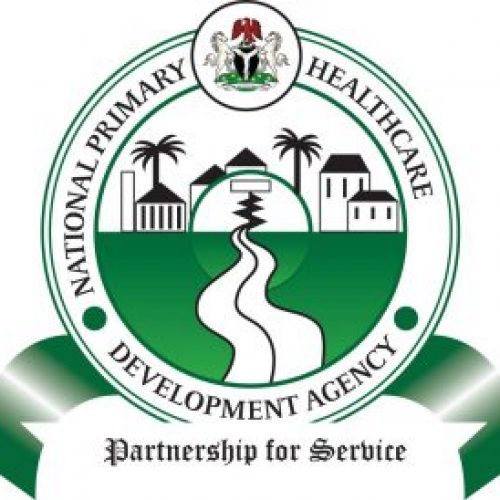
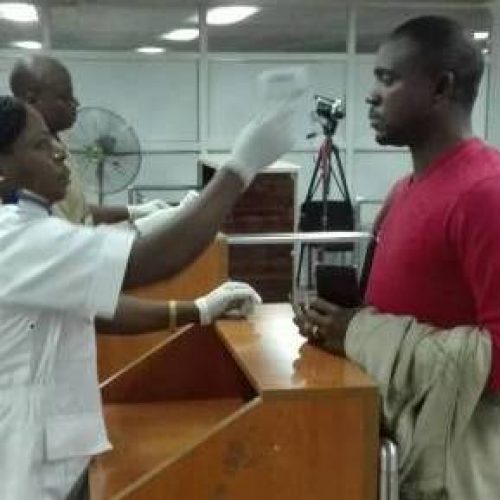


0 Comments
No Comments Yet!
You can be first to comment this post!